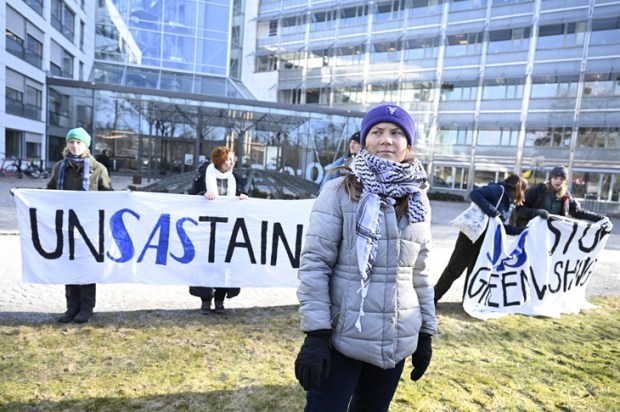Hastily conceived panel discussions are seldom a good idea, yet that’s precisely what the Brookings Institute rushed into following President Trump’s Rose Garden address last week announcing the withdrawal of the world’s largest economy from the Paris climate agreement.
One appreciates an attempt to conduct a timely dialogue on an issue of public importance but when the panel consists of political pundits with narrow fields of expertise, ginned up by a strong sense of moral grievance, the inclination to overreach appears to overwhelm better judgment.
This was the spectacle attendees were treated to when they bowled up for a session on the future of the Paris Agreement absent the United States at the Brookings Institute on Tuesday afternoon.
To be fair, at the outset there was a welcome and candid acknowledgement that while the Paris climate accord may have been very ambitious it was non-binding.
This was framed as “flexibility”, designed to encourage every country in the world to get on board. It worked, virtually all nations signed up on the basis that there were no clear requirements under the agreement and no enforcement mechanisms to achieve compliance with the aspirational emissions targets.
Then the conversation took a pronounced turn for the worse before degenerating into a utopian vision of sunlight uplands. There was predictable lamentation about a “loss of US leadership” and “toxic arguments” in the political arena.
One panellist drew an especially long bow when she suggested stepping back from the climate agreement would compromise the willingness of European allies to co-operate in relation to counter terrorism measures. You could tell by the imploring nature of the argument and the look on her face she wasn’t convinced herself, but thought she’d get away with it in front of a receptive audience.
However, the most egregious pronouncements took place when the panel blundered into a discussion of the economics of carbon mitigation, a subject on which none appeared to have any capacity to think beyond the endlessly repeated bromides of green-left crony capitalists and climate change bureaucrats. All of which appear to stem from the fact that none of the discussants had any discernible economic credentials.
The much-needed discipline of an economist was deeply missed when another panellist roundly informed the audience that “the US is on the wrong side of the economics”. You can write off one remark as careless, yet the assertion presented itself repeatedly and an insistent fashion.
We were informed that emissions reduction was “an opportunity, not a cost” and that businesses were doing it anyway because the business case stacked up. No mention was made of the billions of dollars of subsidies that underpin otherwise uncommercial renewables industries at the expense of higher energy prices and jobs in the rest of the economy.
The economics is trivially straightforward. Abating carbon is costly, achieving environmental objectives has a price and that price is measured in terms of lost economic output, lost jobs and lower living standards. That these experts had been convinced otherwise brings to mind George Orwell’s observation that “there are some ideas so absurd that only an intellectual could believe them”.
Completing the failure to comprehend basic economics, it was remarked that climate change policy was “exactly the same as trade”, which again is precisely incorrect. Free trade benefits economies and consumers. Emissions abatement damages economies and consumers.
Weirdly, defending the unstable international climate change legacy of former President Obama and a gargantuan climate bureaucracy within Washington was described as speaking “truth to power”. To round out matters, the $100 billion per annum to be set aside for developing countries in the Green Climate Fund was bizarrely described as “not a lot of money”.
There was an inherent lack of durability of Obama’s purely symbolic win, on a purely symbolic international agreement. The Obama administration decided to do all it could in the circumstances, which meant it was done without the support of Congress and liable to be readily undone by a more economically literate incoming President aware of the costs.
It’s amazing what supposed experts can agree upon in the absence of economic reality. Abating carbon becomes a key engine of growth and a green jobs bonanza. Of course, if any of this was true we wouldn’t need the Paris Agreement but that didn’t seem to matter. Try telling that to the poorly credentialed pundits engaged in an exercise in group think in which the guiding light of reality was blissfully absent.
Back home in Australia the champagne is on ice. The country is sensibly on the cusp of following the US out of the Paris Agreement. On the strength of this display, we should not only be leaving Paris behind, we should also be leaving behind the mendacious green-left Beltway delusions.
Burchell Wilson is a post-graduate economics scholar at Johns Hopkins University
Got something to add? Join the discussion and comment below.
Got something to add? Join the discussion and comment below.
Get 10 issues for just $10
Subscribe to The Spectator Australia today for the next 10 magazine issues, plus full online access, for just $10.


























Comments
Don't miss out
Join the conversation with other Spectator Australia readers. Subscribe to leave a comment.
SUBSCRIBEAlready a subscriber? Log in